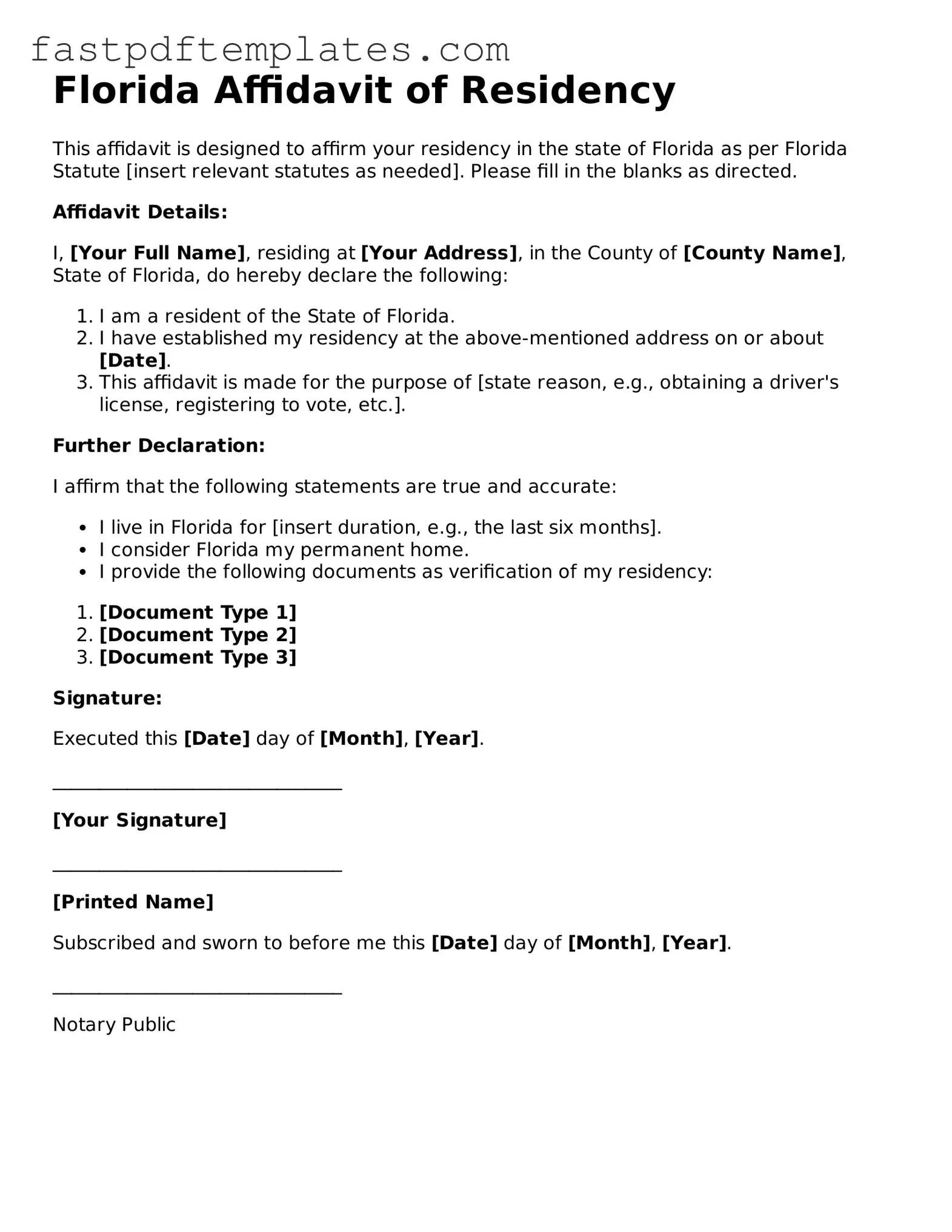Attorney-Approved Florida Affidavit of Residency Document
The Florida Affidavit of Residency form is a legal document used to confirm a person's residence in Florida. This form is often required for various purposes, such as enrolling in school or obtaining a driver's license. Understanding how to properly complete and submit this affidavit is essential for anyone navigating residency requirements in the state.
Access Document

Attorney-Approved Florida Affidavit of Residency Document
Access Document
Your form still needs completion
Complete your Affidavit of Residency online and download the final PDF.
Access Document
or
Click for PDF Form
